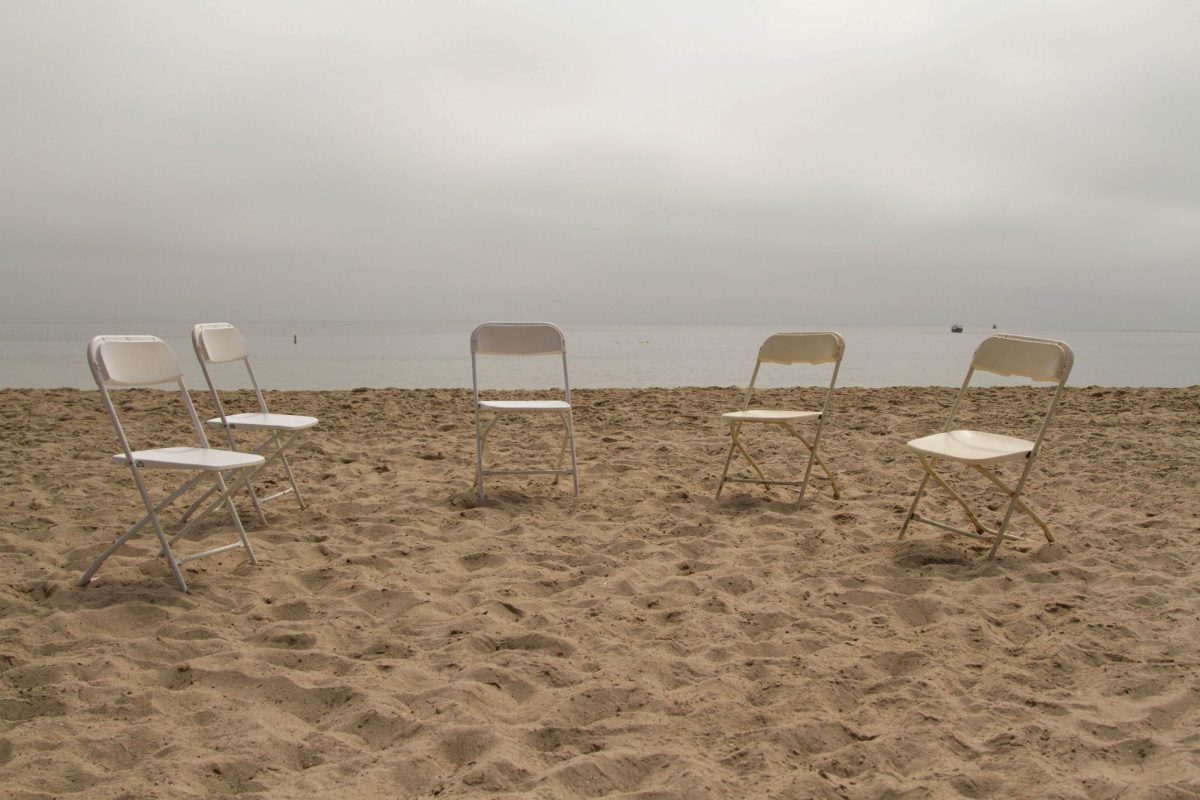They met on a little boat.
Adrift in the still ocean water, Michael Parfit bobs with the gentle waves. Sitting and examining the water, he waits. He knows someone is there. Below the surface, peering up at him with a curious eye, someone is there. The water breaks with a salty mist of water and the distinct, squeaky song of an orca whale resonates throughout the air.
Parfit greets his new friend, Luna, as he nudges the boat, and so begins the unexpected friendship. “Meeting a wild whale that is interested in connecting with you is pretty astonishing,” Parfit said.
Parfit and his wife, photographer Suzanne Chisholm, created the documentary “Saving Luna” that tells the true story of a lost whale seeking companionship through human contact. The critically acclaimed documentary was screened at the 23rd Annual Santa Barbara Film Festival where it won the Independent Audience Choice Award.
“To win the award was kind of unbelievable,” said Parfit. “The film festival was particularly special because I use to live here.” City College alum Parfit was born in London and moved to Santa Barbara when he was a child.
Straight out of high school, Parfit had no idea what he wanted to do in life. But after two weeks at City College, he realized he belonged in the world of journalism.
“What I got from being at City College is that journalism is a public service in a lot of ways and you can be proud of it,” said Parfit. Parfit was a member of The Channels newspaper staff and was heavily influenced by the late journalism professor Ray Canton who was a “terrific mentor.”
“When you produce a newspaper, it is very real and tangible and you get the chance to reach out to people,” he said. After graduating from USC with a degree in journalism, Parfit became a freelance writer. Over the years he has written four books, numerous magazine articles for National Geographic and the Smithsonian, as well as IMAX movie scripts.
“In the freelance business, you do whatever you can,” Parfit said. While living in Canada, Parfit and Chisholm received an assignment from the Smithsonian.
In March of 2004, they traveled 200 miles to the coast of Vancouver Island, where they met Luna. Originally they were supposed to stay three weeks, but the couple ended up staying for three years.
“Once we got to know Luna and his story and watch how the whole thing was unfolding, we couldn’t leave,” said Parfit. Luna, a “solitary, sociable” orca whale who had been separated from his family, was attempting to make friends with humans.
Unfortunately, some saw Luna as a dangerous predator and government officials warned people to keep their distance. Parfit and Chisholm felt as though they were in a unique position to save Luna’s life, and it was then that they decided to break journalistic standards and become politically involved.
Parfit said making the documentary was a “complicated issue.” “Every journalist faces a moment or two in his career when there is something that compels him or her to take action,” said Parfit. “If you as a journalist are in the position to save a life, but it means you have to give up your impartiality, what do you do?”
Having little filmmaking experience, Parfit and Chisholm shot approximately 300 hours of footage for the documentary. The duo split the duties that come with making a film, including script writing and editing.
“A lot of things we do compliment each other,” Chisholm said. “There is no competition so it works out amazingly well.” Parfit’s son, David, also worked in the production of film and did everything from “holding the boom microphone to logging footage on the computer.”
However, according to David, the most substantial thing he did was work on the music. “To get such an overwhelming response is great for my folks,” said David. “They put everything they had into it.”
Sadly, Luna died after being hit by a tugboat in March of 2006. “We were heartbroken when Luna was killed, and we just want to show what a character he was,” said Parfit.
Last week “Saving Luna” won the Best Documentary Indie Award from the Canadian Film & Television Production Association in what Parfit said was a “big deal.”
Although the film continues to be screened at film festivals around the world, Parfit, who lives full-time with his wife in Canada, said that as a former Santa Barbara resident, the Santa Barbara International Film Festival was very meaningful to him. “I would have to say that everything I have been able to accomplish is because of City College,” Parfit said.
Click play to view the trailer of Parit and Chisholm’s film “Saving Luna“






